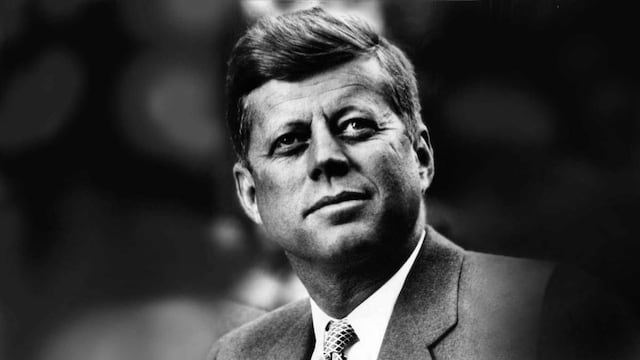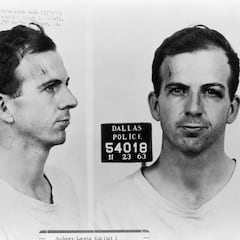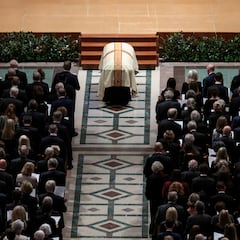Over sixty years after the assassination of President John F Kennedy, research continues to raise doubts over the official story.

The ‘magic bullet theory’: how Lee Harvey Oswald murdered JFK according to the Warren Commission
Friday Nov. 22, 1963, President John F Kennedy was shot twice and killed while his motorcade drove through Dealey Plaza in downtown Dallas, Texas. A panel was set up to investigate the assassination of JFK, that came to be known as the Warren Commission.
For six decades the ‘single bullet theory’, or ‘magic bullet theory’, has been used to support the Warren Commission’S findings that only one shooter, Lee Harvey Oswald, killed the US president. However, a Secret Service agent who was there that day has brought to light new information that opens the possibility of another shooter. As well, a forensic engineering and animation lab, Knott Laboratory, says that while the case is still ongoing, “evidence strongly suggests there is more to the story in this historic event.”
JFK and Oswald’s ‘magic bullet’
According to the President’s Commission on the Assassination of President Kennedy, known unofficially as the Warren Commission, Lee Harvey Oswald shot three times from his perch in a window on the sixth floor of the Texas Book Depository. Two of those bullets struck JFK from behind, one in his back and another in his head, the latter resulted in his death.
The non-lethal bullet that struck him in the back, after exiting his body through the neck, it then hit Texas Governor John Connally above the right armpit, exited his chest, went through his right wrist and finally embedded in his left thigh. Formally known as the ‘single bullet theory’, it has become known as the ‘magic bullet theory’.
Have you heard of the magic-bullet theory?
— Growing Curiosity (@growing_curio) November 22, 2023
On November 22, 1963, John F. Kennedy was assassinated while riding in a presidential motorcade through Dealey Plaza in Dallas, Texas.
The magic-bullet theory, introduced by the Warren Commission during its investigation, suggests… pic.twitter.com/aJnyZwx4ST
Not only because of the seeming improbability of such a trajectory, but also the bullet that was said to be responsible was in near-pristine condition. The Warren Commission settled on the ‘single bullet theory’ based in part on the fact that the bullet was found on a gurney believed to have transported Connally to Parkland Memorial Hospital.
Secret Service agent says he found a second bullet
However, Paul Landis, one of the Secret Service agents who was on JFK’s detail that horrific day in Dallas, recently published a memoir, The Final Witness in which he says that he found a second bullet in the president’s car. The bullet was lodged in the back of the back seat where JFK was seated.
In order to prevent the evidence from being lost in the confusion, he grabbed the bullet and placed in on Kennedy’s gurney, however, somehow it ended up with Connally. Landis was never interviewed by the Warren Commission. This revelation gives support to those who believe there was more than one shooter in JFK’s assassination.
Science says trajectories from ‘single bullet theory’ don’t align
In 2018, John Orr, a former Justice Department attorney, who conducted his own investigation into the assassination of Kennedy as a private citizen, hired Knott Labs. He was seeking to understand if modern forensic engineering tools would corroborate or contradict his theory.
New technology finds ‘single bullet theory’ in JFK assassination scientifically impossible: https://t.co/F9GDgSd2E5 pic.twitter.com/WbOFnvN0q6
— azfamily 3TV CBS 5 (@azfamily) November 21, 2023
The forensic engineering and animation lab reconstructed the scene in 3D using a high-definition laser scan of Dealey Plaza. This allowed engineers to accurately measure point-to-point anywhere in the scene. Then they matched images from the scene and historic photographic evidence from the plaza, the limousine that carried JFK, and the ‘Zapruder film’.
The bullet trajectories were placed into the digital model and forensic engineers were able to measure distances, locations and angles from the point cloud, to develop the exact trajectory between Oswald’s shooting position and points on each body.
“For the single bullet theory to be true, the shooting position, bullet exit point on President Kennedy, and entry point on Governor Connally should all be reasonably in line,” the report stated. “When drawing this line from the sixth-floor perch of the Texas Book Depository to the positions of the two men and their entry/exit points, we found a significant difference in both distance and angle.
“Further analysis revealed that for one shot to strike both President Kennedy and Governor Connally as detailed in the Warren Report, Governor Connally would have to be seated 6-10 [ìnches] toward the interior of the limousine, depending on if the shot occurred at Zapruder frame 210 or 225,” continued the report. “We can see through the photogrammetry process that this is not his location.”
Related stories
“This case is ongoing, but evidence strongly suggests there is more to the story in this historic event. Modern science refutes the Warren Commission’s findings on the assassination of President John F. Kennedy.”
Get your game on! Whether you’re into NFL touchdowns, NBA buzzer-beaters, world-class soccer goals, or MLB home runs, our app has it all. Dive into live coverage, expert insights, breaking news, exclusive videos, and more – plus, stay updated on the latest in current affairs and entertainment. Download now for all-access coverage, right at your fingertips – anytime, anywhere.


Complete your personal details to comment